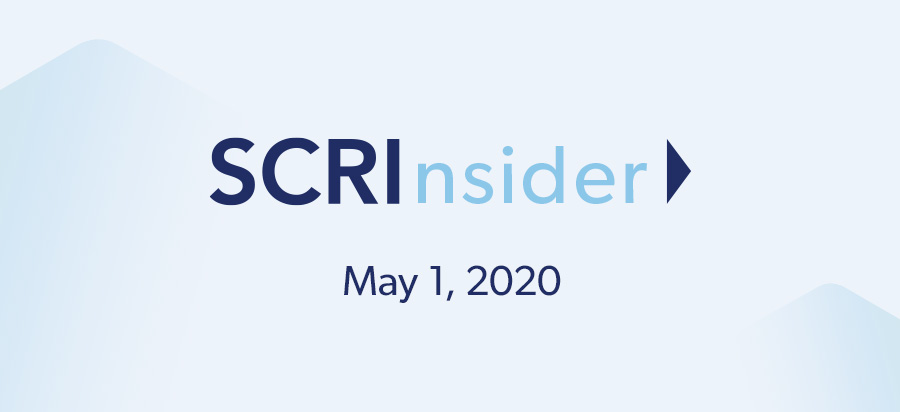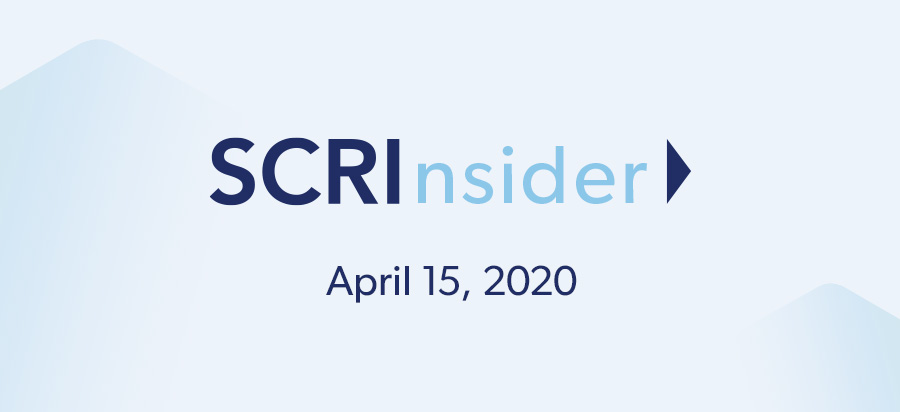In 2019, the National Academies of Sciences, Engineering and Medicine released the report Shaping Summertime Experiences: Opportunities to Promote Healthy Development and Well-Being for Children and Youth. Deborah Moroney, Managing Director at the American Institutes for Research (AIR) and one of the committee members who contributed to this consensus report, graciously offered to speak with us about the study. In this interview, Brenda McLaughlin, SCRI’s Managing Director, and Dr. Moroney discuss the report’s importance to the field of summer learning, as well as applying these learnings during the COVID-19 crisis.
Q: Deb, in the past ten years, we have seen many reports on summer learning. What is different about this report? Why should we pay attention to it?
A distinguishing feature of this report is that it culls information from across many disciplines. In addition to academics and enrichment, it also looks at social and emotional development, physical and mental health, and safety and risk-taking to understand the full range of experiences that summertime can offer.
We know that all communities, families, and young people bring valuable assets to their setting. But we know that children and youth who live in less advantageous circumstances—for example, living with poverty, food insecurity, or in neighborhoods with high incidence of violence, crime, or over-policing—face numerous obstacles in having their needs met across these important developmental domains in general and more specifically in accessing positive summertime experiences. When you read the report, you will see that these subpopulations required a special focus in the committee’s recommendations.
We did a thorough review of studies examining the results of summertime experiences across a range of intended outcomes. We found that summertime experiences can affect academic, health, social, emotional, and safety outcomes for children and youth. However, most studies were on outcomes associated with academics and health and not the other important domains of development. For example, there were few studies that fully explored how structured summertime experiences support social and emotional development, with the exception of some very specialized camp settings. This is a gap we identified for future research.
Another unique feature of the report is that it employs a systems perspective, which allowed us to elevate the interconnected nature of summertime experiences. The result was an updated view of summertime. Let me highlight an excerpt from the report that really speaks to this point:
Summer provides a unique window of opportunity during the year to engage families and leverage the strengths and resources of families, communities, and other stakeholders to improve the education, health, safety, and well-being of children and youth.
Shaping Summertime Experiences: Opportunities to Promote Healthy Development and Well-Being for Children and Youth
So, we should pay attention to this report because it goes beyond the usual suspects of academics, exercise, and nutrition that are often the focus of summertime studies, to consider all of the experiences that support overall well-being, and some that are unique to summertime as a time away from school.
Q: The report has many recommendations, ranging from addressing individual children’s basic developmental needs to extending academic-year data collection to include the summer months. If you could help a community prioritize just one recommendation, or one set of recommendations, which one would it be and why?
This is tricky because the report is comprehensive and depending on where a community is in terms of offering summertime experiences, priorities would vary. But, primary to any summertime effort is ensuring families’ basic needs are met. Summer meals are so important when school is out. Additionally, to ensure equitable access to quality summertime experiences, communities need to reduce barriers to participation like costs and program location. This can often be a challenge in rural and poor communities, and for families of youth with special needs.
As I mentioned before, one solution offered in the report to reduce barriers and improve equitable access is for communities to take a systemic approach, bringing together vested stakeholders including families, local government, community-based organizations, health centers, nutrition services, and businesses. Central to a community-based systemic approach is leveraging community assets and having a coordinating unit, like an intermediary organization. Intermediary organizations provide coordination, shared resources, and oftentimes mechanisms for fund development, data collection, and technical assistance. BellXcel was highlighted in the report as one of these intermediaries at the national level, providing technical assistance on the local level.
Central to a community-based systemic approach is leveraging community assets and having a coordinating unit, like an intermediary organization.
Dr. Deborah Moroney
Q: So, you have told us that a systemic approach is a promising strategy. For communities that want to take a systemic approach to summer learning, how do they start?
The Summertime Experiences report has three recommendations that get at this question:
- Local governments and private employers need to come together around a shared vision for summer that addresses improving equitable access to summertime experiences for all youth, not just those whose families can afford to pay.
- Funders and stakeholders should continue to support the critical role of intermediaries in maintaining and expanding access to high-quality summertime experiences.
- Data collection efforts across community agencies and institutions, including schools, need to be coordinated, and summertime data needs to be disaggregated so we can make decisions about summer resource allocations that are fueled by data. So, shared vision, coordinated efforts, and good data are the places to start.
Q: How do the findings from the report help us think differently about school-year learning? Are there lessons from summer that could be adopted/adapted for the September to June months of learning? Or for home environments, given the COVID-19 crisis that has closed school buildings?
This is clearly not in the report as it predates the current crisis, but it is a good question. COVID-19 is elevating huge existing inequities because the basic structure of schooling isn’t available to most young people.
But the findings from the Summertime Experiences report do highlight the myriad factors that contribute to children’s well-being that can be applied in school, at home, and in essential child-care settings right now as families scramble to be workers, teachers, chefs, and social supports all at the same time. I’ll name just a few that come to mind.
Common sense perhaps, but findings from the report are a good reminder to attend to basic human needs (nutrition, physical and emotional safety, and mental health). We need to address and reflect on this current situation while providing safety and continuity as best as we can. One of AIR’s new resources for this is: Building Positive Conditions for Learning at Home: Strategies and Resources for Families and Caregivers.
The report also tells us that play and informal learning and structured enrichment are both good for development. This time of being outside of school buildings is an opportunity to elevate play and informal learning and connect to outdoor science.
This time of being outside of school buildings is an opportunity to elevate play and informal learning and connect to outdoor science.
Dr. Deborah Moroney
We also know that being physical, from a walk outside to sit-ups in the living room, is essential for our well-being. So, just keep kids moving and help them make healthy eating choices. But I am also baking and eating a lot of cookies because I think a little comfort goes a long way too!
Summertime experiences often get kids out into their communities and capitalize on the strengths and interests of the people and place they are in. Often summer is a time to take them into community institutions like libraries and museums, many of which are now offering free online resources like my own Shedd Aquarium here in Chicago. So, go local. Check out what is happening in your community, even if online.
The last thing I will say about the report is that it clearly shows that summertime is a unique time to grow, learn, and develop because it is different than time at school. My advice is for families not to try to make home like school, but rather to build off of the experiences and resources you have access to, to the best of your ability.
Deborah Moroney is a Managing Director at the American Institutes for Research (AIR), where she is the Director of the Youth Development and Supportive Learning Environments area.
Dr. Moroney is a methodological expert in implementation science—in the context of both rigorous research and the design of program evaluations. Dr. Moroney serves as a reviewer or editorial board member on multiple peer-reviewed journals and has authored practitioner and organizational guides using both research findings and practitioner input.
She has authored numerous chapters and publications on social and emotional development and assessment, including Ready to Assess. She has also edited two volumes on elements of a well-rounded education: Creating Safe, Equitable, Engaging, Schools, and Social and Emotional Learning in Out-of-School Time.
Dr. Moroney served on a National Academies of Sciences (NAS) committee on summer learning and adolescent development; she also contributed a paper to an NAS workshop on character development. Dr. Moroney has been a PI on several studies of local and national youth development organizations.




